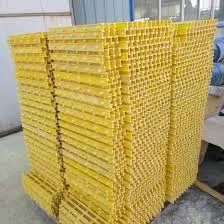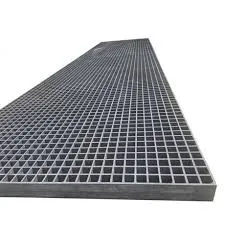
-
 Afrikaans
Afrikaans -
 Albanian
Albanian -
 Amharic
Amharic -
 Arabic
Arabic -
 Armenian
Armenian -
 Azerbaijani
Azerbaijani -
 Basque
Basque -
 Belarusian
Belarusian -
 Bengali
Bengali -
 Bosnian
Bosnian -
 Bulgarian
Bulgarian -
 Catalan
Catalan -
 Cebuano
Cebuano -
 China
China -
 China (Taiwan)
China (Taiwan) -
 Corsican
Corsican -
 Croatian
Croatian -
 Czech
Czech -
 Danish
Danish -
 Dutch
Dutch -
 English
English -
 Esperanto
Esperanto -
 Estonian
Estonian -
 Finnish
Finnish -
 French
French -
 Frisian
Frisian -
 Galician
Galician -
 Georgian
Georgian -
 German
German -
 Greek
Greek -
 Gujarati
Gujarati -
 Haitian Creole
Haitian Creole -
 hausa
hausa -
 hawaiian
hawaiian -
 Hebrew
Hebrew -
 Hindi
Hindi -
 Miao
Miao -
 Hungarian
Hungarian -
 Icelandic
Icelandic -
 igbo
igbo -
 Indonesian
Indonesian -
 irish
irish -
 Italian
Italian -
 Japanese
Japanese -
 Javanese
Javanese -
 Kannada
Kannada -
 kazakh
kazakh -
 Khmer
Khmer -
 Rwandese
Rwandese -
 Korean
Korean -
 Kurdish
Kurdish -
 Kyrgyz
Kyrgyz -
 Lao
Lao -
 Latin
Latin -
 Latvian
Latvian -
 Lithuanian
Lithuanian -
 Luxembourgish
Luxembourgish -
 Macedonian
Macedonian -
 Malgashi
Malgashi -
 Malay
Malay -
 Malayalam
Malayalam -
 Maltese
Maltese -
 Maori
Maori -
 Marathi
Marathi -
 Mongolian
Mongolian -
 Myanmar
Myanmar -
 Nepali
Nepali -
 Norwegian
Norwegian -
 Norwegian
Norwegian -
 Occitan
Occitan -
 Pashto
Pashto -
 Persian
Persian -
 Polish
Polish -
 Portuguese
Portuguese -
 Punjabi
Punjabi -
 Romanian
Romanian -
 Russian
Russian -
 Samoan
Samoan -
 Scottish Gaelic
Scottish Gaelic -
 Serbian
Serbian -
 Sesotho
Sesotho -
 Shona
Shona -
 Sindhi
Sindhi -
 Sinhala
Sinhala -
 Slovak
Slovak -
 Slovenian
Slovenian -
 Somali
Somali -
 Spanish
Spanish -
 Sundanese
Sundanese -
 Swahili
Swahili -
 Swedish
Swedish -
 Tagalog
Tagalog -
 Tajik
Tajik -
 Tamil
Tamil -
 Tatar
Tatar -
 Telugu
Telugu -
 Thai
Thai -
 Turkish
Turkish -
 Turkmen
Turkmen -
 Ukrainian
Ukrainian -
 Urdu
Urdu -
 Uighur
Uighur -
 Uzbek
Uzbek -
 Vietnamese
Vietnamese -
 Welsh
Welsh -
 Bantu
Bantu -
 Yiddish
Yiddish -
 Yoruba
Yoruba -
 Zulu
Zulu
Jan . 13, 2025 15:04
Back to list
fiberglass pipe
Fiberglass pipes have long been revered in various industries for their durability and versatility. This innovative material, a composite of resin and glass fibers, offers a unique blend of features that cater to both industrial and residential applications. As someone deeply entrenched in the field, I've witnessed firsthand the transformational impact fiberglass pipes have had across different sectors—making it an indispensable component in many engineering projects.
From an environmental perspective, fiberglass pipes score high on sustainability metrics. Their lightweight nature means reduced fuel consumption during transportation, and their longevity equates to fewer replacements, decreasing the overall carbon footprint. They're also recyclable, an added advantage for eco-conscious companies aiming to reduce waste. One can't ignore the significant contributions fiberglass pipes make towards sustainable development goals, reinforcing the ethical choice companies have when selecting their materials. Expert installation and proper maintenance are crucial for unlocking the full potential of fiberglass pipes. It's essential to work with professionals familiar with the nuances of the material to ensure optimal performance. I've seen cases where improper handling led to unintentional damage, underlining the importance of specialized skill in this field. Regular inspections and adherence to manufacturer guidelines preserve the pipe’s performance and extend its life expectancy, further maximizing return on investment. In essence, fiberglass pipes offer a potent combination of durability, efficiency, and eco-friendliness that outperforms many traditional piping materials. Their adaptability across varied applications, from municipal water systems to residential plumbing, underscores their unparalleled versatility. With continued advancements in manufacturing techniques, the future of fiberglass piping looks promising, making it an astute choice for industries committed to innovation and sustainability.


From an environmental perspective, fiberglass pipes score high on sustainability metrics. Their lightweight nature means reduced fuel consumption during transportation, and their longevity equates to fewer replacements, decreasing the overall carbon footprint. They're also recyclable, an added advantage for eco-conscious companies aiming to reduce waste. One can't ignore the significant contributions fiberglass pipes make towards sustainable development goals, reinforcing the ethical choice companies have when selecting their materials. Expert installation and proper maintenance are crucial for unlocking the full potential of fiberglass pipes. It's essential to work with professionals familiar with the nuances of the material to ensure optimal performance. I've seen cases where improper handling led to unintentional damage, underlining the importance of specialized skill in this field. Regular inspections and adherence to manufacturer guidelines preserve the pipe’s performance and extend its life expectancy, further maximizing return on investment. In essence, fiberglass pipes offer a potent combination of durability, efficiency, and eco-friendliness that outperforms many traditional piping materials. Their adaptability across varied applications, from municipal water systems to residential plumbing, underscores their unparalleled versatility. With continued advancements in manufacturing techniques, the future of fiberglass piping looks promising, making it an astute choice for industries committed to innovation and sustainability.
Related Products









